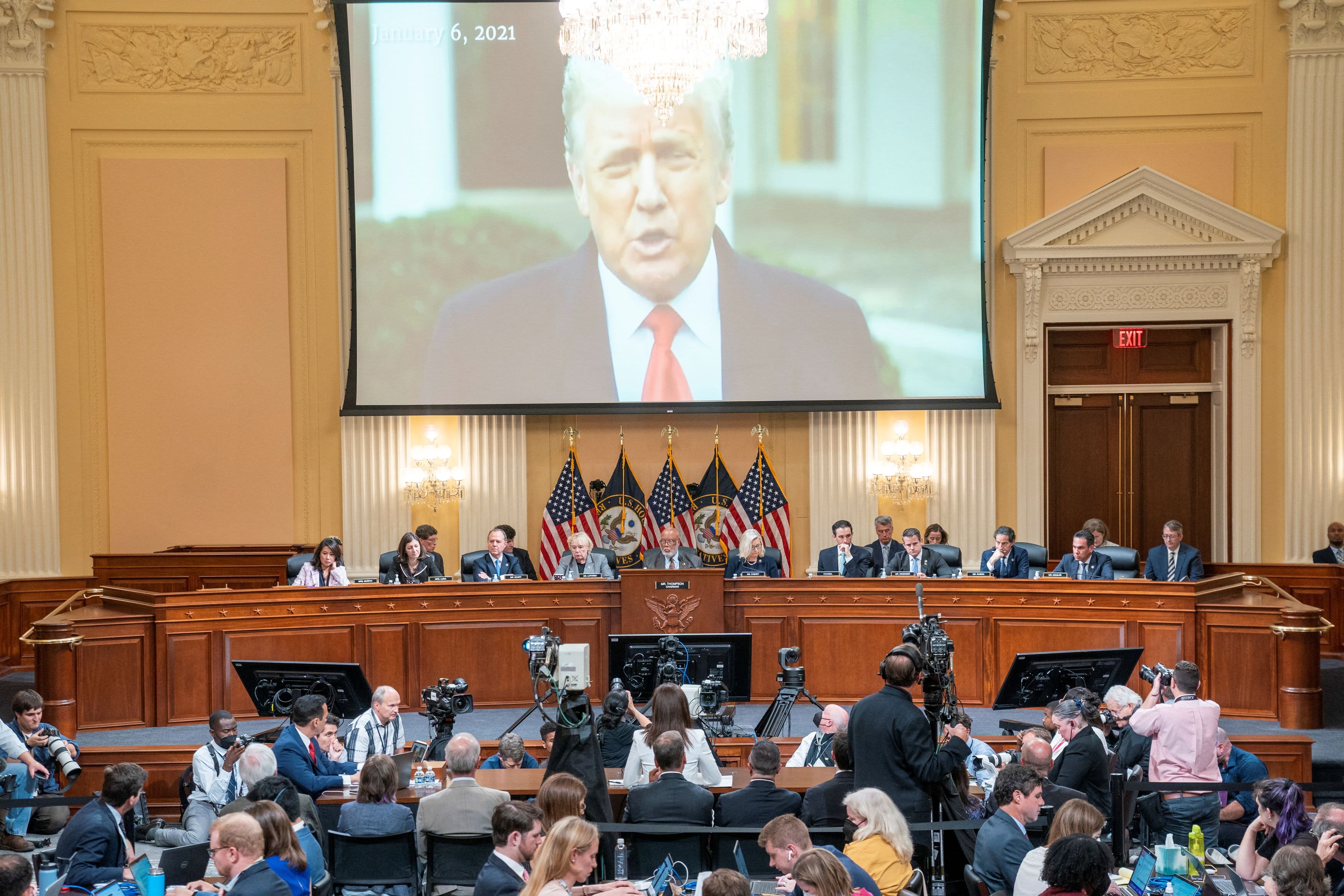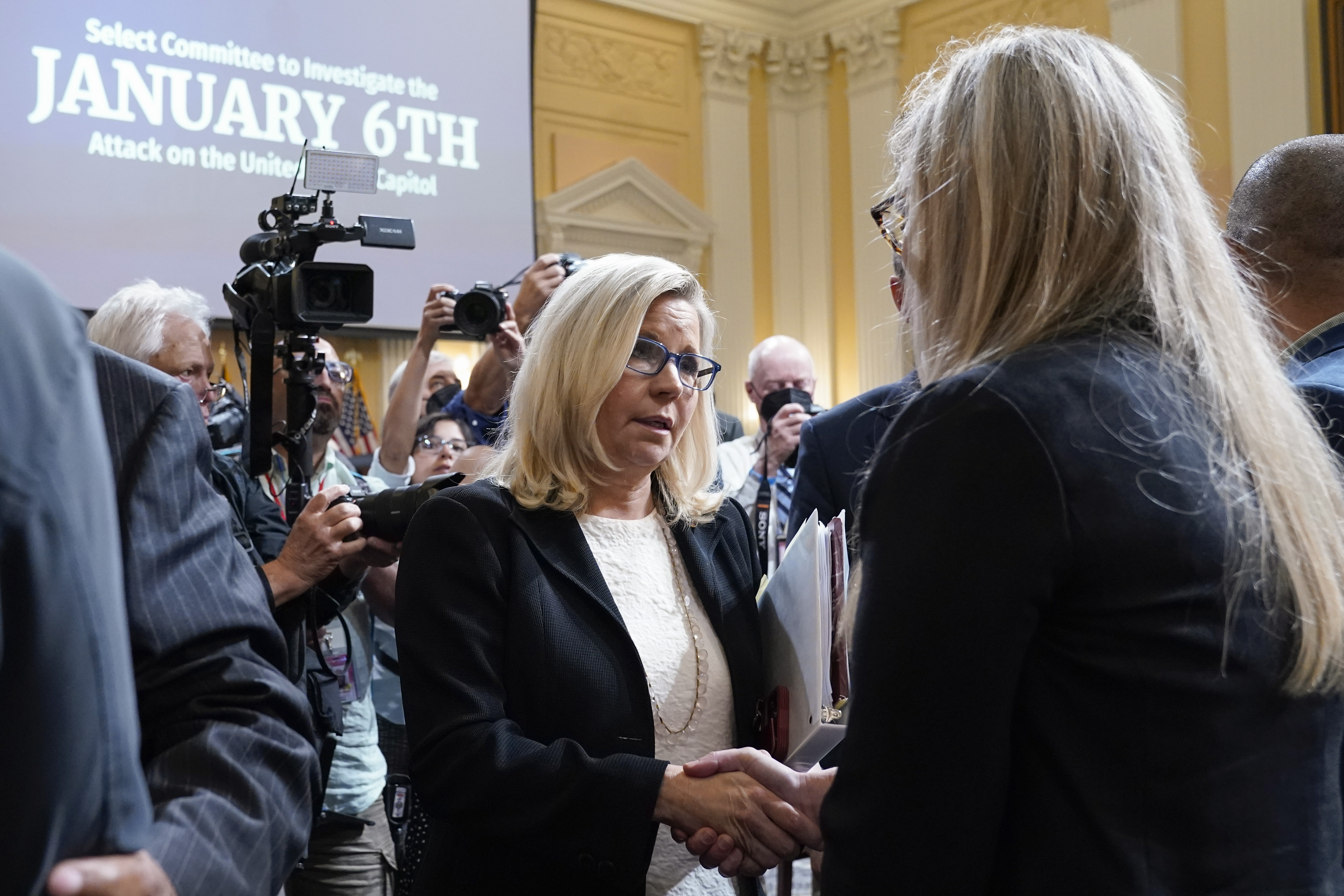Next up before the House committee investigating the Capitol riot: a White House aide and a member of the National Security Council during the Trump administration, both of whom are expected to testify during a prime time hearing on Thursday.
The aide, Sarah Matthews, a former deputy press secretary, and Matthew Pottinger, a former deputy national security adviser, were among the Trump officials who resigned immediately after a mob broke into the Capitol on Jan. 6, 2021.
The House committee that has been holding the hearings on the insurrection has said Thursday’s session will focus on the three hours between when the attack began and when the former president asked his supporters to leave the building.
Here are short profiles of the expected witnesses:
Get San Diego local news, weather forecasts, sports and lifestyle stories to your inbox. Sign up for NBC San Diego newsletters.
Who Is Sarah Matthews?

According to her LinkedIn profile, the graduate of Kent State University worked as an intern for Sen. Rob Portman, R-Ohio, and the former Republican House Speaker John A. Boehner, became press secretary of the House Committee on Energy and Commerce and moved to Trump’s presidential campaign in 2019. She became White House deputy press secretary the following year.
Matthews resigned on Jan. 6, saying in a statement that as someone who had worked in the halls of Congress she had been “deeply disturbed” by what she had seen.
The country needs a peaceful transition of power, she said at the time.
On the first anniversary of the Capitol attack, Matthews, in a Twitter thread, called it an attempted coup.
“Make no mistake, the events on the 6th were a coup attempt, a term we’d use had they happened in any other country, and former President Trump failed to meet the moment,” she tweeted.
“While it might be easier to ignore or whitewash the events of that day for political expediency — if we’re going to be morally consistent — we need to acknowledge these hard truths,” she wrote.
She spoke to the House Jan. 6 committee earlier this year. A clip from her testimony was played at the June 16 session, in which she responded to Trump’s tweet that Vice President Mike Pence “didn’t have the courage to do what should have been done.”
“The situation was already bad, and so it felt like he was pouring gasoline on the fire by tweeting that,” Matthews said.
Matthews also came to the defense last month of her former colleague, Cassidy Hutchinson, after Hutchinson gave riveting and damaging testimony about former President Donald Trump to the same House committee.
Hutchinson was the top aide to the ex-White House chief of staff, Mark Meadows.
Among Hutchinson's accounts of the day, she described being told Trump had tried to grab the steering wheel of the presidential SUV to force the Secret Service to drive him to the Capitol as his supporters marched there. Instead, the agents returned the president to the White House after his rally on the Ellipse.
Matthews tweeted that Hutchinson was putting her country first to tell the truth, in the face of harassment and threats.
"This is what real courage, integrity, and patriotism looks like," she wrote.
In February 2021, Matthews became the communications director for the Republicans on the U.S. House of Representatives Select Committee on the Climate Crisis, according to her LinkedIn profile.
Who Is Matthew Pottinger?

Matthew Pottinger's resignation as a result of the Capitol riot was announced by his boss on Twitter.
"Asking Matt Pottinger to serve as my deputy was my first act as NSA and it turned out to be one of my best decisions," then-National Security Adviser Robert O'Brien tweeted, according to NBCNews.com. "As he heads West to rejoin his family in beautiful Utah, Matt does so with my appreciation for a job well done and with my enduring friendship."
Pottinger's work had led "to a great awakening in our country and around the world to the danger posed by the Chinese Communist Party," O'Brien wrote.
The Washington Post, in a profile, noted that Pottinger pushed to brand the coronavirus the Wuhan virus, a term that angered many as unnecessarily antagonistic and racist. He believed that Chinese leaders were engaged in a cover-up, the Post reported.
Pottinger resigned when Trump attacked Pence in a tweet.
"One of my staff brought me a printout of a tweet by the president, and the tweet said something to the effect that Mike Pence, the vice president, didn't have the courage to do what he -- what should have been done. I -- I read that tweet and made a decision at that moment to resign," Pottinger said in earlier videotaped testimony before the committee that was played at a public session. "That's where I knew that I was leaving that day, once I read that tweet."
He became a visiting fellow at the Hoover Institution after leaving the White House.
A former Marine intelligence officer, he became the deputy national security adviser in 2019. Previously, he was the Asia director on the National Security Council, and led the shift in China policy. He also worked as a reporter in China for Reuters and the Wall Street Journal, founded an Asia-focused risk consultancy and led research into Asia at an investment fund in New York.



